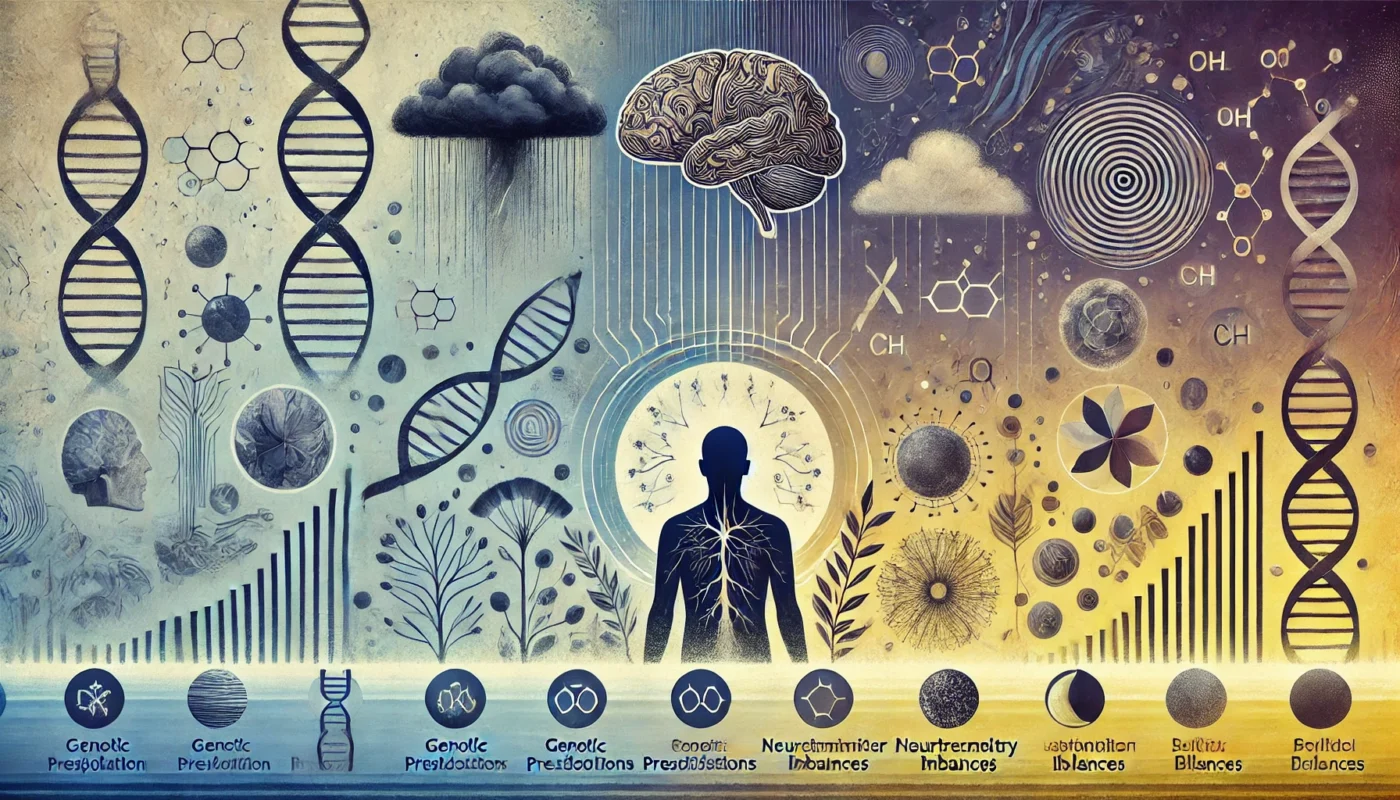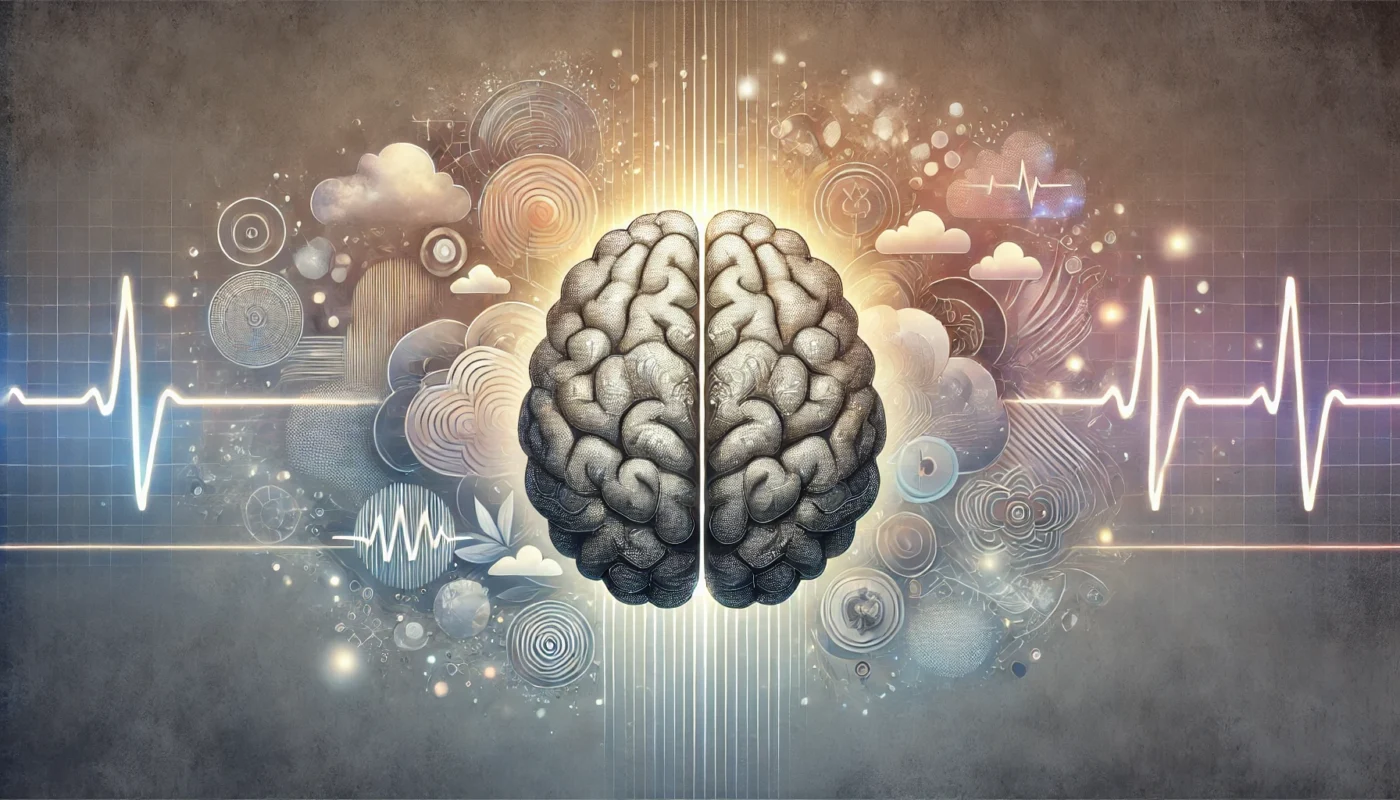Schizophrenia is a severe and chronic mental health condition that affects how individuals think, feel, and behave. It is characterized by disruptions in thought processes, perceptions, emotional responsiveness, and social interactions. According to the World Health Organization (WHO), schizophrenia affects approximately 24 million people worldwide, or about 1 in 300 individuals. This article provides an in-depth overview of schizophrenia, exploring its symptoms, causes, treatment options, and prevention strategies while highlighting how nutritional supplementation can support individuals with this disorder.
You May Also Like:
What is Schizophrenia?
Schizophrenia is a complex psychiatric disorder that typically emerges in late adolescence or early adulthood. It is classified as a spectrum disorder due to the wide range of symptoms and severity levels it encompasses. The condition can significantly impair daily functioning, leading to difficulties in maintaining relationships, holding jobs, and managing self-care.
Schizophrenia is often misunderstood and stigmatized, partly due to its portrayal in the media. Contrary to common misconceptions, individuals with schizophrenia do not have “split personalities.” Instead, the condition involves a disconnection from reality, referred to as psychosis.

Symptoms of Schizophrenia
The symptoms of schizophrenia are broadly categorized into positive, negative, and cognitive symptoms.
Positive Symptoms
These symptoms involve distortions or exaggerations of normal functions, including:
- Hallucinations: Experiencing sensations that are not real, such as hearing voices or seeing things that others do not perceive.
- Delusions: Holding false beliefs despite evidence to the contrary, such as believing one is being persecuted or has special powers.
- Disorganized Speech: Difficulty organizing thoughts, leading to incoherent or irrelevant speech.
- Abnormal Motor Behavior: Unpredictable agitation, repetitive movements, or catatonia (lack of movement or response).
Negative Symptoms
Negative symptoms reflect a loss of normal abilities and include:
- Avolition: Lack of motivation to engage in daily activities.
- Anhedonia: Inability to feel pleasure.
- Alogia: Reduced speech output.
- Flat Affect: Diminished emotional expression.
Cognitive Symptoms
These symptoms involve impairments in thinking and processing information:
- Difficulty with attention, concentration, and decision-making.
- Problems with working memory (e.g., remembering instructions or focusing on tasks).
Causes of Schizophrenia
Schizophrenia results from a combination of genetic, neurobiological, and environmental factors.
1. Genetic Factors
Schizophrenia is highly heritable. Studies published in Nature Genetics (2021) identified over 100 genetic loci associated with increased risk for schizophrenia. Having a first-degree relative with the disorder significantly raises an individual’s risk.
2. Neurochemical Imbalances
Dysregulation of neurotransmitters, particularly dopamine and glutamate, plays a critical role in schizophrenia. Excess dopamine activity in certain brain areas is associated with positive symptoms, while glutamate dysregulation may contribute to cognitive deficits.
3. Brain Structure Abnormalities
Brain imaging studies show structural and functional abnormalities in individuals with schizophrenia, such as reduced gray matter volume and altered connectivity between brain regions.
4. Environmental Factors
Environmental triggers, including prenatal exposure to infections, malnutrition, or stress, as well as substance abuse (e.g., cannabis), can increase the likelihood of developing schizophrenia.
5. Psychosocial Stressors
Early-life trauma, social isolation, and socioeconomic adversity can exacerbate the risk of schizophrenia, particularly in genetically vulnerable individuals.

Treatment Options for Schizophrenia
While there is no cure for schizophrenia, a combination of pharmacological, psychosocial, and lifestyle interventions can effectively manage symptoms and improve quality of life.
1. Antipsychotic Medications
Antipsychotic drugs are the cornerstone of schizophrenia treatment. These medications work by modulating dopamine activity in the brain. They are classified into:
- Typical Antipsychotics: Older drugs like haloperidol and chlorpromazine, effective for positive symptoms but associated with side effects such as movement disorders.
- Atypical Antipsychotics: Newer drugs like risperidone and olanzapine, which have fewer side effects and also address some negative symptoms.
A systematic review in The Lancet Psychiatry (2020) reported that atypical antipsychotics were more effective and better tolerated than typical antipsychotics.
2. Psychotherapy
- Cognitive Behavioral Therapy (CBT): Helps individuals identify and manage delusional thoughts and develop coping strategies.
- Family Therapy: Involves family members in the treatment process to improve communication and reduce relapse rates.
- Social Skills Training: Enhances interpersonal and communication skills to improve social functioning.
3. Cognitive Remediation
Cognitive training programs are designed to improve memory, attention, and problem-solving abilities. A study in Schizophrenia Research (2019) found that cognitive remediation therapy significantly improved cognitive outcomes in individuals with schizophrenia.
4. Lifestyle and Nutritional Interventions
Lifestyle changes, such as regular physical activity, stress management, and a balanced diet, can play a crucial role in managing schizophrenia. Nutritional supplementation, in particular, has shown promise in alleviating symptoms.
Nutritional Supplementation for Schizophrenia
Certain supplements have demonstrated potential benefits for individuals with schizophrenia by targeting underlying neurochemical imbalances and oxidative stress.
1. Magnesium Glycinate
Magnesium is vital for regulating neurotransmitters and reducing inflammation. Magnesium glycinate, a highly absorbable form, has calming properties. A study published in Psychiatry Research (2017) found that magnesium supplementation improved negative symptoms and reduced anxiety in individuals with schizophrenia.
2. Omega-3 Fatty Acids
Omega-3s, particularly eicosapentaenoic acid (EPA), are essential for brain health and reducing inflammation. A clinical trial in Nature Communications (2018) reported that omega-3 supplementation reduced the risk of psychosis in high-risk individuals and improved cognitive function in patients with schizophrenia.
3. N-Acetylcysteine (NAC)
NAC, an antioxidant, boosts glutathione levels and combats oxidative stress, which is elevated in schizophrenia. A meta-analysis in JAMA Psychiatry (2019) concluded that NAC supplementation reduced negative symptoms and improved overall functioning.
4. Zinc Picolinate
Zinc is essential for neurotransmitter synthesis and modulating the immune response. A study in Biological Psychiatry (2016) found that zinc supplementation enhanced the efficacy of antipsychotic medications in treatment-resistant schizophrenia.
5. Vitamin D
Vitamin D supports brain health and regulates immune responses. Low vitamin D levels are associated with increased severity of schizophrenia symptoms. A study published in Schizophrenia Bulletin (2020) found that vitamin D supplementation improved mood and cognitive performance in patients.
6. Curcumin
Curcumin, the active compound in turmeric, has anti-inflammatory and antioxidant properties. A study in Frontiers in Psychiatry (2021) reported that curcumin supplementation improved cognitive deficits and reduced inflammation in schizophrenia patients.

Steps for Possible Prevention of Schizophrenia
While schizophrenia cannot always be prevented, certain measures may reduce the risk or delay its onset:
1. Early Detection and Intervention
Identifying early warning signs, such as social withdrawal or cognitive decline, allows for timely intervention, which can prevent progression to full-blown psychosis.
2. Stress Management
Chronic stress is a known trigger for schizophrenia. Practicing relaxation techniques, such as mindfulness meditation or yoga, can help reduce stress levels.
3. Avoidance of Substance Abuse
Limiting the use of psychoactive substances, particularly cannabis, can significantly reduce the risk of schizophrenia in genetically predisposed individuals.
4. Prenatal and Early-Life Care
Ensuring proper prenatal nutrition and reducing exposure to infections or toxins during pregnancy can lower the likelihood of schizophrenia in offspring.
5. Social Support Networks
Maintaining strong social connections and seeking support from family, friends, or mental health professionals can improve resilience against stressors that contribute to schizophrenia.
6. Healthy Lifestyle Choices
A balanced diet, regular exercise, and adequate sleep are essential for maintaining overall brain health and reducing inflammation, which is implicated in schizophrenia.
Conclusion
Schizophrenia is a multifaceted mental health condition that requires a comprehensive approach to management and care. By combining pharmacological treatments, psychotherapy, cognitive interventions, and lifestyle modifications, individuals with schizophrenia can lead fulfilling lives. Nutritional supplementation, including magnesium glycinate, omega-3 fatty acids, and curcumin, offers additional support by addressing neurochemical imbalances and oxidative stress. Prevention efforts, such as early detection, stress management, and healthy lifestyle choices, are critical for mitigating the impact of schizophrenia on individuals and society. Continued research and destigmatization are essential to improve outcomes for those affected by this complex disorder.

References
- Physical Exercise for Treatment of Mood Disorders: A Critical Review. Retrieved from: https://pmc.ncbi.nlm.nih.gov/articles/PMC5423723/
- Omega 3 fatty acids in bipolar disorder: a preliminary double-blind, placebo-controlled trial. Retrieved from: https://pubmed.ncbi.nlm.nih.gov/10232294/
- Magnesium supplementation beneficially affects depression in adults with depressive disorder: a systematic review and meta-analysis of randomized clinical trials. Retrieved from: https://www.frontiersin.org/journals/psychiatry/articles/10.3389/fpsyt.2023.1333261/full
- Vitamin D supplementation in bipolar depression: A double blind placebo controlled trial. Retrieved from: https://pubmed.ncbi.nlm.nih.gov/28777983/
- N-acetylcysteine in psychiatry: current therapeutic evidence and potential mechanisms of action. Retrieved from: https://pmc.ncbi.nlm.nih.gov/articles/PMC3044191/
Important Note: The information contained in this article is for general informational purposes only, and should not be construed as health or medical advice, nor is it intended to diagnose, prevent, treat, or cure any disease or health condition. Before embarking on any diet, fitness regimen, or program of nutritional supplementation, it is advisable to consult your healthcare professional in order to determine its safety and probable efficacy in terms of your individual state of health.
Regarding Nutritional Supplements Or Other Non-Prescription Health Products: If any nutritional supplements or other non-prescription health products are mentioned in the foregoing article, any claims or statements made about them have not been evaluated by the U.S. Food and Drug Administration, and such nutritional supplements or other health products are not intended to diagnose, treat, cure, or prevent any disease.

